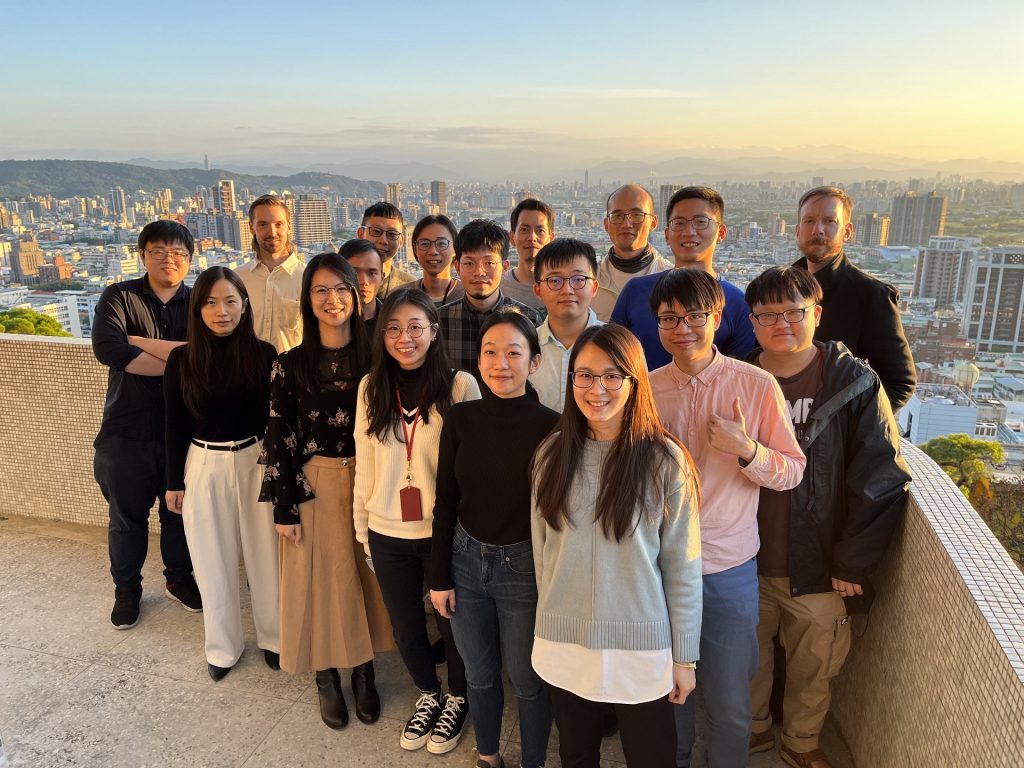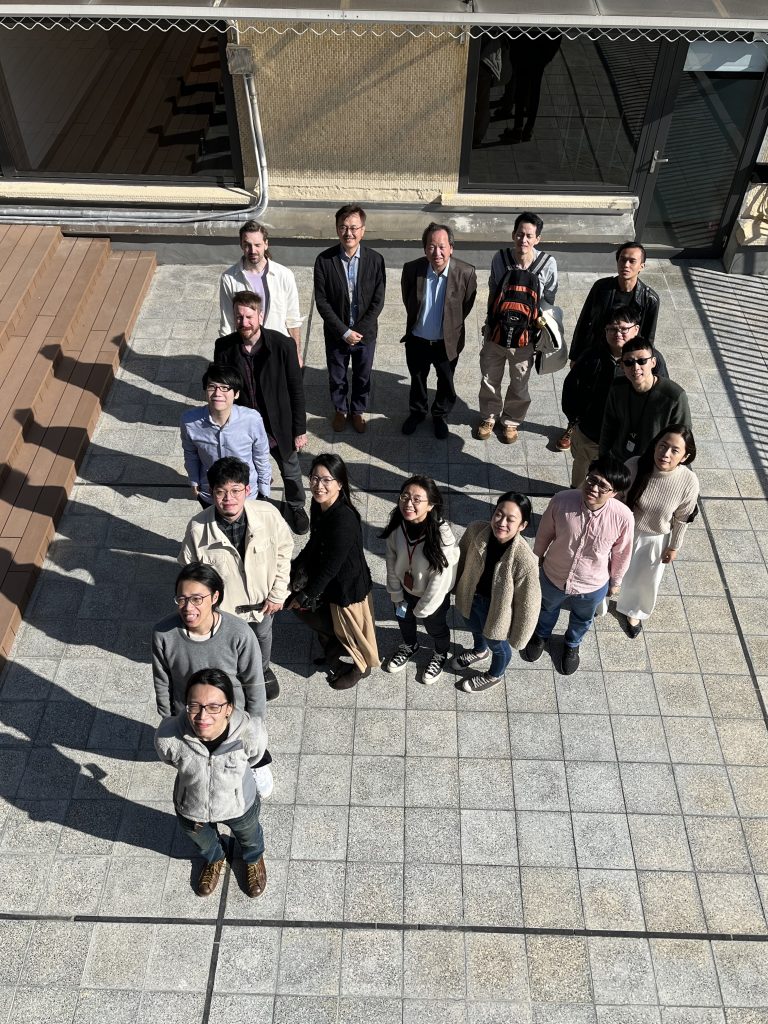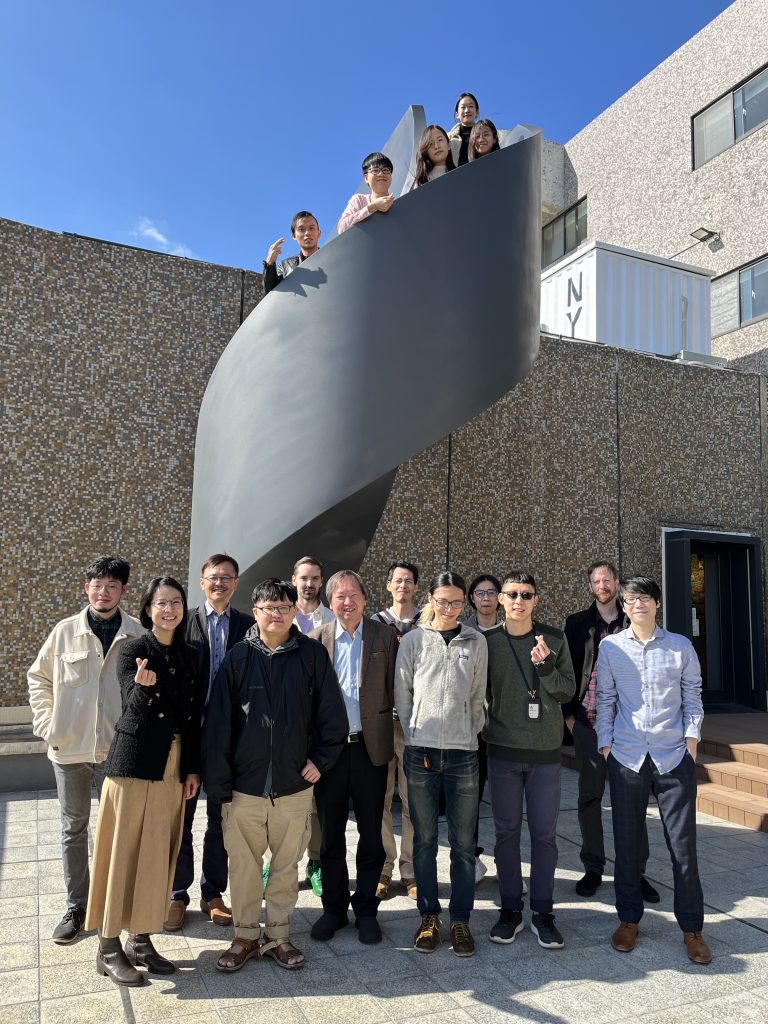The Institute of Philosophy of Mind and Cognition (IPMC) was established in 2005 and approved by the Ministry of Education to establish a master’s program in 2007. It recruited five students for the master’s program in 2008. Professor Allen Houng was responsible for the planning and establishment. During this period, he received full support from former President Wu Yanhua and all the Deans.
From 2008 to 2017, the number of faculty members in IPMC increased from 3 full-time professors (Allen Houng, Wen-Fang Wang, and Thomas Benda) to 6 full-time professors (Wen-Fang Wang, Thomas Benda, Kai-Yuan Cheng, Aleksandra Mroczko-Wasowicz, Karen Yan, Ying-Tung Lin) and two part-time professors (Allen Houng, Pei-Chi Tu). By 2015, the percentage of full-time foreign professors was 33%, and the percentage of full-time female professors was 50%. IPMC was the first philosophy institute/department in Taiwan to achieve this gender ratio, and one of the few institutes/departments in the world to achieve such a ratio.
Between 2019 and 2022, two faculty members retired and one resigned for personal reasons. In August 2021, Michael Stuart joined IPMC. In February 2022, Alexandre Erler, Chris McCarroll, Jonathon Hricko, Justin Hewitson, Li-Hung Chang, and Angel Ho joined. In 2023, Li-Hung Chang transferred to the Institute of Neuroscience. Michael Stuart left the job due to family reasons. Currently, there are 8 full-time faculty members. The percentage of full-time foreign professors is 50%, and the percentage of full-time female professors is 38%.
Between 2008 to 2024, our enrollment quota increased from five to seven, and 63 students have graduated from IPMC. There are 16 students who have gone abroad for further graduate studies in the US, Canada, Germany, Amsterdam, and the UK; and 14 out of 16 of those students (87.5%) received some form of financial support from those programs. Many of our students have presented their papers at international conferences and have received travel grants from the National Science and Technology Council in Taiwan.

Research Mission Statement
The IPMC is dedicated to studying cognition, whether in humans, other animals, or computers. Studying cognition requires different disciplinary perspectives, so researchers at the IPMC draw on philosophy, neuroscience, psychology, neurolinguistics, and cognitive science. The main focus of the IPMC was traditionally consciousness and the philosophy of cognitive science, but has since branched out to include research foci on neuroscience, clinical medicine, imagination, memory, neuroethics, religion, and AI. All these topics revolve around core philosophical problems about the nature of mind and cognition, including what cognition is, how we can know about it, what affects it, its social and biological bases, and the ethics of classifying and altering minds. The mission of the IPMC is more than merely addressing traditional philosophical questions, but doing so in a way that contributes to tackling significant social, scientific, political and ethical issues by bridging academia, science and society. For more, see the individual faculty research profiles on the “Faculty” page.


Teaching Mission Statement
We offer courses for undergraduates at NYCU, to complement their learning in other programs. We also offer an interdisciplinary undergraduate program called the Philosophy, Intelligence, Brain and Mind program (PIBM). The mandate of the PIBM program is to cultivate students’ abilities to integrate the humanities with biomedical information communication technology. The unique feature of PIBM lies in teaching cutting-edge empirical philosophy of science research methods, such as experimental philosophy, cognitive ethnography, text mining, network analysis, and the interdisciplinary toolbox method. In the PIBM program, students learn how to combine the philosophy of mind and cognition, ethics and values, and empirical scientific research tools to develop their careers in science.
The IPMC also offers a dedicated masters program for students who aim to specialize in topics related to cognition. We offer two tracks for our masters students, which are differentiated by the research methods. The “analytic track” employs methods traditionally associated with analytic philosophy. This includes, but is not limited to, conceptual analysis, reflective equilibrium, and the critical analysis of empirical scientific results. Through this track, students will train and sharpen their skills in logical reasoning, critical thinking, and interdisciplinary synthesis. This track equips students to engage deeply with philosophical literature, enhancing their ability to analyze and articulate complex ideas with clarity and precision.
The “empirical track” pursues philosophical inquiries using the methods of empirical science, drawing from disciplines such as sociology, psychology, education, and cognitive (neuro)science. Students in this track gain hands-on experience in conducting empirical studies, such as qualitative research, survey design, experimental design, and statistical analysis. This track is embedded in philosophical analysis, ensuring the empirical findings are critically examined within the broader context of philosophical debates and issues. Despite these distinctions, we encourage students in both tracks to become familiar with each set of methods. For more, see our “Courses List” page.